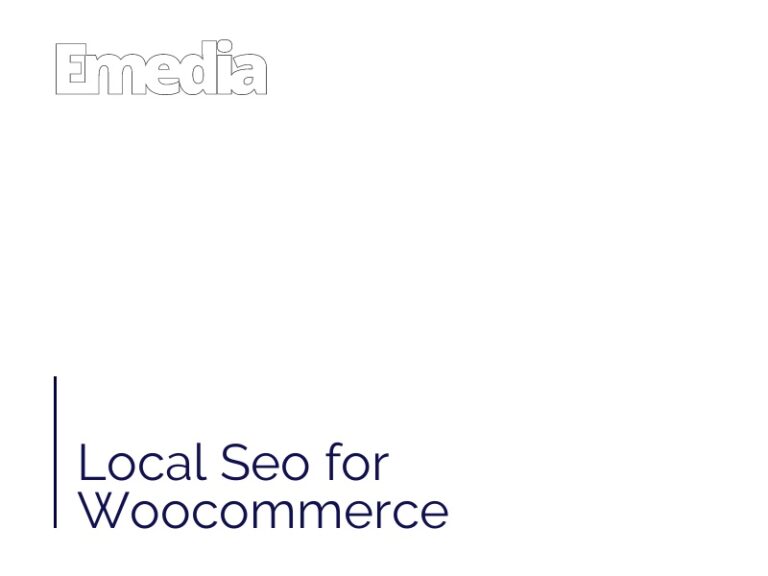Optimizing for Local Search Success: A Complete Guide for 2023
Local search engine optimization (SEO) is essential for businesses looking to connect with customers in their geographic area and gain an edge over competitors. This comprehensive guide explores key local SEO strategies to improve local rankings, traffic, and growth in 2023.
The Growing Importance of Local SEO
More and more searches have local intent – people looking for businesses and services near them. Without proper local SEO, companies become invisible to these high-intent local searches.
Key stats:
- 76% of searches on mobile have local intent (Wordstream)
- 90% of people use search engines to find local information (Forbes)
- 61% call a business after searching for local information (BrightLocal)
Businesses that rank higher in local SERPs (search engine results pages) gain an invaluable advantage in visibility, leads and revenue.
Optimizing for Local Keywords and Intent
The foundation of local SEO is optimizing pages for keywords related to your geographic location, services, and local customer intent.
Important elements:
- Research location-specific keywords using tools like Moz and SEMrush
- Incorporate highly relevant local keywords naturally throughout page content
- Localize on-page elements like titles, headers, URLs, meta descriptions
This improves relevance for local searches and helps pages rank higher.
Building Local Links and Citations
Earning links and citations from directory listings and websites referencing your local area builds powerful trust and authority signals.
Tactics include:
- Manual submissions to niche directories and local citation sources
- Outreach to local blogs, partners, and directories to earn backlinks
- Listing on aggregators like Yelp to gain citations
Optimizing for Local Technical Factors
Technical elements like mobile optimization, site speed, and structured data markup also impact local rankings.
Key factors:
- Structured data identifying your business name, address, location
- Fast mobile site speed and responsive design
- Clean local schema markup to enhance snippets
Free tools like Google’s Mobile-Friendly Test and Structured Data Testing Tool can help diagnose issues.
Monitoring the Local Search Landscape
Track your local SEO efforts and adjust strategies using data.
Helpful reports:
- Google Search Console for impressions, clicks, rankings
- Google Analytics for visitor behavior and traffic sources
- Moz Local to monitor local listings and reviews
Managing Your Local Reputation
Your online reputation directly impacts local SEO. Encourage customer reviews and proactively manage your profiles.
Tactics:
- Respond professionally to all Google, Facebook, Yelp reviews
- Prominently display positive reviews on your site
- Maintain consistent NAP (name, address, phone) details
Investing in Local SEO for Sustainable Growth
Comprehensive local SEO builds visibility and trust in your geographic market over time. By optimizing site content, technical factors, listings, and reviews, you gain an invaluable edge.
Partner with a trusted local SEO agency to execute proven strategies tailored for your business growth goals. The investment yields measurable returns through increased qualified traffic, leads, and revenue from local searches.
Elevating Local SEO: Embracing New Dynamics for Enhanced Search Authority
In the evolving world of digital marketing, Local SEO stands as a cornerstone for businesses aiming to establish a strong online presence. However, the landscape of Local SEO is not static; it’s influenced by various factors that shape its effectiveness and strategies. This article delves into four crucial yet often overlooked aspects of Local SEO, shedding light on their nuances and implications for a comprehensive understanding and implementation.
1. The Nuanced Role of User Experience (UX) in Local SEO
User Experience (UX) plays a pivotal role in Local SEO. A seamless UX ensures that visitors not only find local business listings easily but also interact with them effectively. This includes mobile optimization, intuitive navigation, and fast-loading pages. Enhanced UX leads to higher engagement, reduced bounce rates, and ultimately, better search rankings. It’s a subtle yet powerful tool that shapes customer perception and behavior, directly impacting Local SEO performance.
2. The Emergence of Voice Search
Voice Search is revolutionizing Local SEO. With the rise of virtual assistants, more people are using voice queries to find local businesses. This shift demands a reorientation of keyword strategy towards conversational, long-tail phrases. Businesses need to optimize for natural speech patterns and question-based searches, ensuring their local listings are voice-search friendly. This trend is not just a passing wave; it’s reshaping the way local information is sought and consumed.
3. Local SEO and Social Media Integration
The intersection of Local SEO and Social Media is a powerful convergence point. Social media platforms are becoming local search engines themselves, where users discover and review businesses. Integrating local business profiles with social media enhances visibility and drives local traffic. Utilizing local hashtags, engaging with local communities, and sharing geo-tagged content can significantly amplify a business’s local search presence. This integration is a strategic imperative in today’s interconnected digital landscape.
4. The Impact of AI and Machine Learning
AI and Machine Learning are transforming Local SEO. These technologies enable sophisticated algorithms that personalize search results based on user behavior and preferences. For local businesses, this means a shift towards more targeted and relevant content. AI-driven insights can help businesses understand local search trends and optimize their SEO strategies accordingly. The future of Local SEO will be increasingly data-driven, with AI at its core, offering unprecedented precision in reaching local audiences.
Incorporating these dimensions into your Local SEO strategy is not just about keeping up with trends; it’s about staying ahead in the game. Each of these aspects – UX, Voice Search, Social Media, and AI – brings a unique dynamic to Local SEO. By understanding and leveraging these factors, businesses can enhance their search engine authority, resonate more deeply with their audience, and pave the way for sustained online success in their local markets.
Frequently Asked Questions About Local SEO
Here are answers to some common local search optimization questions:
What are the most important local SEO ranking factors?
The core factors are keywords, links and citations, technical optimization, positive local reviews and reputation, and creating useful localized content. Addressing all of these provides a strong foundation.
How long does local SEO take to deliver results?
Basic technical fixes can lead to local indexing improvements within weeks. However, it takes time to earn citations, optimize content, and build authority. Expect 6-12 months for full results from a strategic approach.
Should I optimize for mobile separately?
Today, all SEO should be mobile-first. Ensure your site is mobile-friendly and fast loading on all devices. Mobile optimization is a critical local ranking factor.
How often should I create local content?
Aim for at least one new locally-optimized blog post per month. Update service pages, events, and other content regularly as well. Searchers crave fresh, helpful local content.
What tools do I need for local SEO?
Start with Moz Local, Google Search Console, Google Analytics, and Google My Business. Check local rankings with Moz, SEMrush, or Ahrefs. SEO tools like Screaming Frog can help find technical issues.
Focusing on local SEO delivers results. You gain visibility in the searches that matter most – from customers actively looking for businesses like yours. Follow this comprehensive local optimization guide to build an impactful presence.












